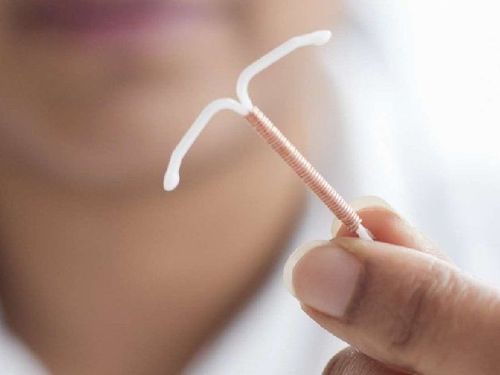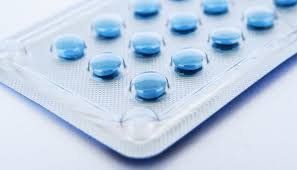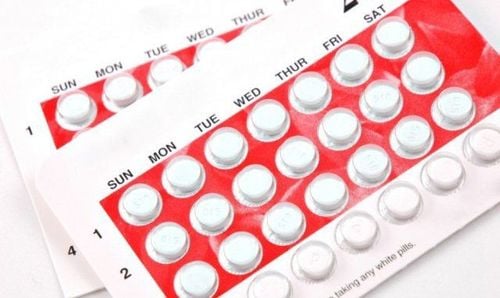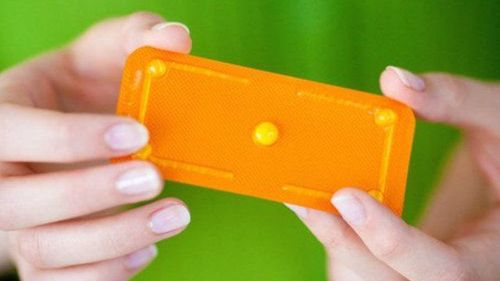This is an automatically translated article.
The article was professionally consulted by Specialist Doctor II Pham Thi Tuyet Mai - Obstetrician and Gynecologist - Department of Obstetrics and Gynecology - Vinmec Hai Phong International General Hospital.1. Learn about injectable birth control pills
An injectable contraceptive is an injectable medication that contains hormones that help women prevent pregnancy with long-lasting effects. It works by slowly releasing the hormone progestin into the body to prevent ovulation. Dehydro Medroxy Progesterone Acetate (DMPA) injection contains the hormone progestin 150 mg.2. Advantages of injectable birth control pills
High-dose injectable contraceptives (150mg/time) will be absorbed slowly, have a long-lasting effect, so it can be used only once to prevent pregnancy for 3 months, like temporary maternity. Oral contraceptives do not affect fertility, so if you want to get pregnant again, you only need to stop taking the pill for a few months. Children who are breastfed by mothers with oral contraceptives will have normal height, weight, and intellectual development. Therefore, the drug is still suitable for lactating women.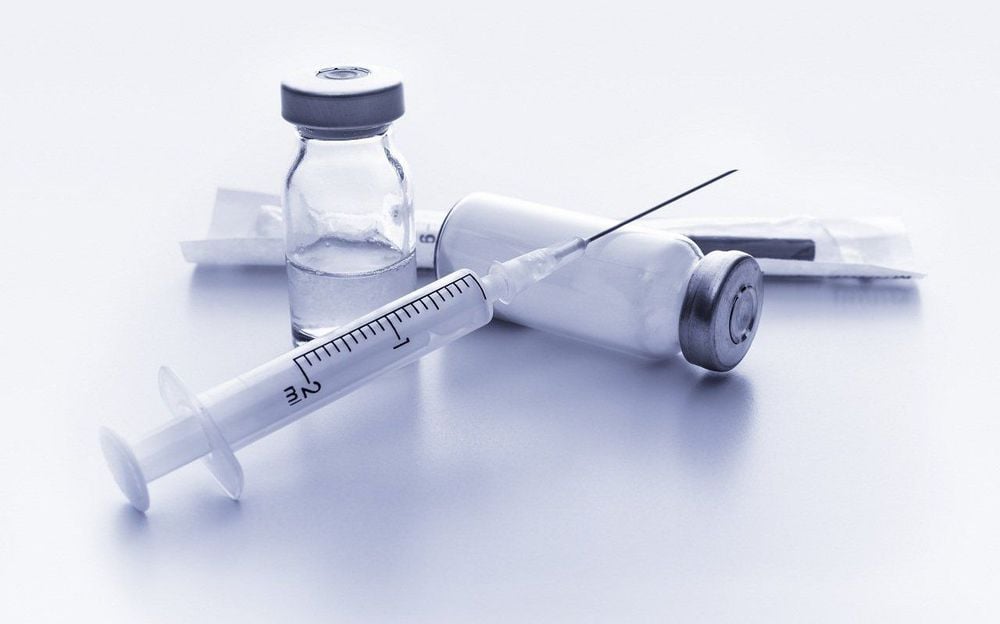
This method of contraception does not cause disturbances in blood vessels, blood pressure, does not affect steroid production and immunity, does not cause edema, does not develop uterine fibroids, so it can be used for people with uterine fibroids. bow . Oral contraceptives can be used for people with uncomplicated valvular heart disease, but not for people with severe heart disease such as myocardial infarction, thrombophlebitis.
3. Side effects of injectable birth control pills
Injectable contraceptives have some side effects such as:
Missing period: This is a common side effect, about 60% of women using injectable contraceptives experience it. This is because injectable birth control pills contain only progestin, so the amount of progestin will be higher than the normal ratio of estrogen. As a result, the uterine lining will not grow thick and become shed and bleed like during a normal period, this is called amenorrhea. This phenomenon is not harmful to health or reproduction in the future, so continue to use the contraceptive injection. Menorrhagia: When using oral contraceptives, menorrhagia, heavy bleeding, and menstrual bleeding may also occur. Menorrhagia is a menstrual cycle that lasts for 7 to 8 days, and the amount of blood is equal to or more than normal (50-80ml). This phenomenon usually only occurs in the first injections of the contraceptive injection, then gradually disappears and stabilizes, so continue to use the contraceptive injection. Menorrhagia is light bleeding between menstrual periods. This phenomenon is not serious and does not require treatment and will go away on its own. Menstrual bleeding is the amount of blood more than a normal period, very rarely occurs. Weight gain: The birth control shot can cause weight gain, usually by 5% within 6 months, with continued weight gain. If you experience rapid weight gain while using the injectable pill, you should consult a specialist and possibly switch to another method of contraception. Osteoporosis : Long-term use of the injectable oral contraceptive may decrease bone mineral levels in some women, but this may return to normal when the injection is stopped. Oral contraceptives cause osteoporosis in women of any age, usually occurring rapidly and worsening when used for more than 2 years, but not or very rarely occurring within 2 years. Therefore, oral contraceptives should not be used for more than 2 years. Mood changes: Birth control pills also make users change their mood like pregnancy (when sad, angry, depressed, tired) but only for a short time, if it lasts, it needs treatment. and after a short time of treatment it also disappears. Headache: In addition, headache, lower abdominal pain, breast engorgement, nausea but not severe, can be handled by the usual methods.

4. How long does it take to have a period after stopping the birth control pill?
When you get an injection of hormonal contraceptives, the pill will still work for 12 weeks, as a small amount of the hormone continues to be released in the body after the last injection, so it may take a while. It takes time for the menstrual cycle to return to normal. When you stop taking the injectable, it can take months for your period to return to normal (about 8 months on average) and up to 18 months after you can be fertile again. Even so, you'll still need to use another form of birth control within 14 weeks of your last injection if you don't want to get pregnant.5. Who should not use injectable contraceptives?
Injecting birth control pills is not suitable for some women:
Pregnant women People with breast cancer. People who are at high risk for coronary heart disease (such as older age, smoking, diabetes, and high blood pressure). People with high blood pressure or blood vessel disease. People who are suffering from deep vein thrombosis, pulmonary embolism or have ever or are having a cerebrovascular accident or myocardial ischemia. People with systemic lupus erythematosus and antiphospholipid antibodies (or no test) or severe thrombocytopenia. People with abnormal vaginal bleeding have not been diagnosed with a cause. People who have had breast cancer before and have not shown any recurrence within the past 5 years. People with diabetes with complications (kidneys, nerves, retina, blood vessels) or more than 20 years. Currently, among all methods of contraception, oral contraceptive injection is considered a safe, effective and suitable method for many women. However, to bring about high effectiveness in contraception, you need to choose to perform injections at reputable and good quality medical facilities.
Vinmec International General Hospital is the address for examination, treatment and prevention of diseases, including Obstetrics and Gynecology. When performing the examination process at Vinmec, customers will be welcomed and used modern facilities and machinery along with perfect medical services under the guidance and advice of doctors. excellent doctor, well-trained both at home and abroad.
Please dial HOTLINE for more information or register for an appointment HERE. Download MyVinmec app to make appointments faster and to manage your bookings easily.





